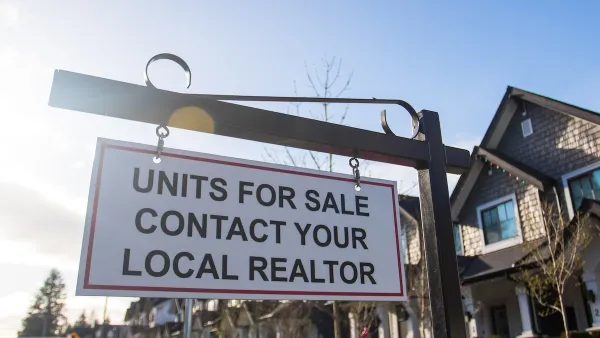Young, educated city natives are being forced to pit their financial needs against their geographic desires in a battle against gentrification.
The recession has set off a domino effect of gentrification across the country, as rising rents force the middle-class population out of the neighborhoods they grew up in and into lower-income areas, writes Nona Aronowitz. As she puts it, "Young city natives who were raised middle class and are now struggling financially have upper-middle class tastes but working-class or poverty-level incomes." And with the change in location comes a political crisis for many who must now deal with the realization that, from a technical point of view, they have become gentrifiers, whether they like it or not.
Aronowitz describes her own experiences living in New York and shifting gears to a cheaper apartment in Harlem, but, she claims, what she and the younger working-class population in New York are experiencing is happening all over the country. "Young adults with a four-year degree are about 94 percent more likely to live in close-in urban neighborhoods than their less-educated counterparts (up from 61 percent in 2000). Yet many of those same young, educated people are living on the poverty line. Half of recent graduates are either jobless or underemployed."
Some would argue that the struggle to afford living shouldn't be equated to affording a lifestyle. In these hard economic times, 20- and 30-somethings may need to get used to adopting a simpler way of living.
Aronowitz suggests one alternative -- following in the footsteps of those who engaged in a "more constructive" form of gentrification, by relocating to "places like New Orleans, Austin, or the Rust Belt to save money, help with revitalization efforts, or become a big fish in a small pond."
FULL STORY: How the Recession Made Me a Gentrifier in My Home Town

Planetizen Federal Action Tracker
A weekly monitor of how Trump’s orders and actions are impacting planners and planning in America.

Map: Where Senate Republicans Want to Sell Your Public Lands
For public land advocates, the Senate Republicans’ proposal to sell millions of acres of public land in the West is “the biggest fight of their careers.”

Restaurant Patios Were a Pandemic Win — Why Were They so Hard to Keep?
Social distancing requirements and changes in travel patterns prompted cities to pilot new uses for street and sidewalk space. Then it got complicated.

Platform Pilsner: Vancouver Transit Agency Releases... a Beer?
TransLink will receive a portion of every sale of the four-pack.

Toronto Weighs Cheaper Transit, Parking Hikes for Major Events
Special event rates would take effect during large festivals, sports games and concerts to ‘discourage driving, manage congestion and free up space for transit.”

Berlin to Consider Car-Free Zone Larger Than Manhattan
The area bound by the 22-mile Ringbahn would still allow 12 uses of a private automobile per year per person, and several other exemptions.
Urban Design for Planners 1: Software Tools
This six-course series explores essential urban design concepts using open source software and equips planners with the tools they need to participate fully in the urban design process.
Planning for Universal Design
Learn the tools for implementing Universal Design in planning regulations.
Heyer Gruel & Associates PA
JM Goldson LLC
Custer County Colorado
City of Camden Redevelopment Agency
City of Astoria
Transportation Research & Education Center (TREC) at Portland State University
Camden Redevelopment Agency
City of Claremont
Municipality of Princeton (NJ)




























